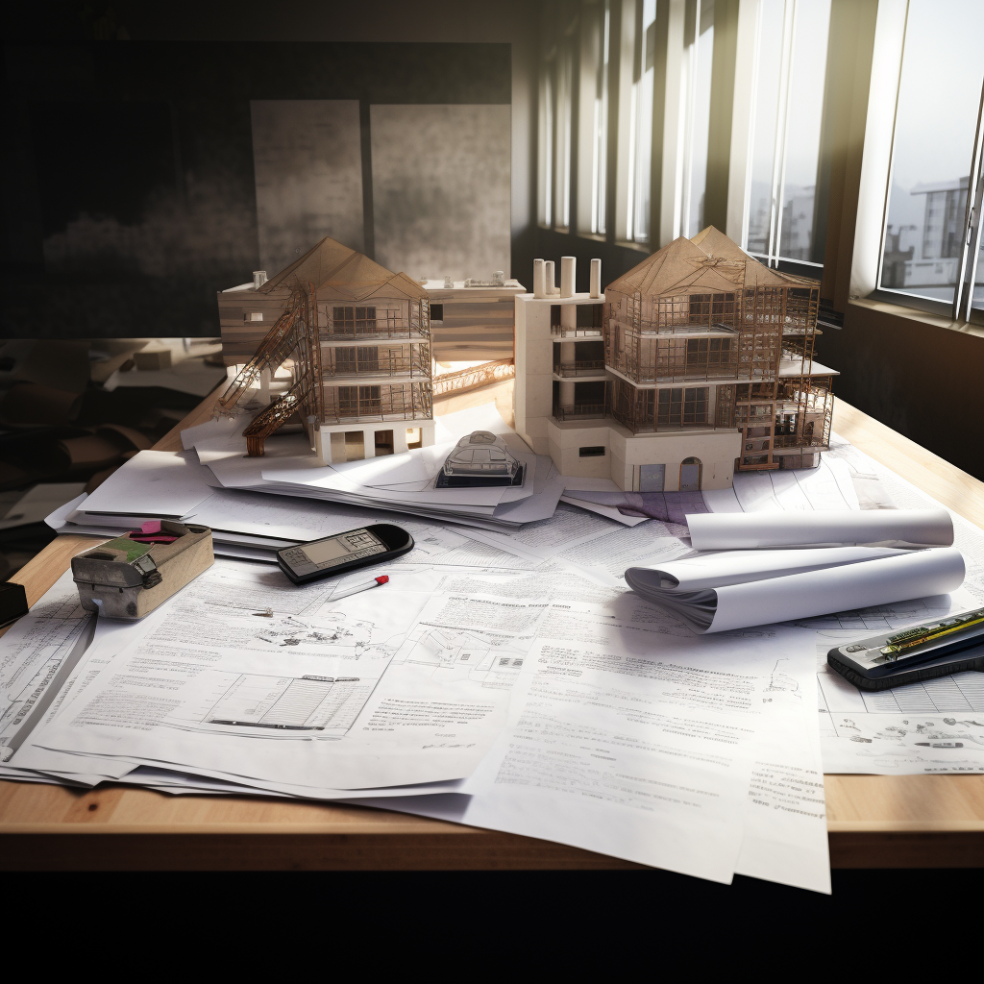Understanding the intricacies of California building permits is crucial if you're planning to build in the Golden State. Building permits are essential to any construction project, as they ensure that your project complies with local building codes, safety rules, and zoning regulations. This comprehensive article will cover all you need to learn about building permits in California. From the types of licenses to the building permit applications and common challenges.

Types of Building Permit California
California has several types of building permits. Each one serves a specific purpose. Knowing which type of building permit you require for your project is important before beginning the application process. Here are some of the most common types.
1. Building Permits
Most construction and renovation projects require permits for building. This includes new constructions, additions, alterations, and major repairs. Your project must comply with local building codes, safety standards, and zoning regulations.
2. Electrical Permits
You will need an electrical license if your project involves electrical work, such as rewiring or installing new electrical systems. This permits ensures that electrical work is done by licensed professionals who meet safety standards.
3. Plumbing Permits
Plumbing permits are required for any plumbing work, including installing new plumbing systems, water heating systems, or sewer lines. This ensures that your plumbing system works properly and complies with safety regulations.
4. Mechanical Permits
HVAC (Heating, Ventilation and Air Conditioning) installations and modifications require mechanical permits. These permits ensure your heating and cooling system meets energy efficiency and safety standards.
5. Demolition Permits
You must first obtain a demolition license before demolishing a structure or building. This process ensures the safe removal of structures and proper disposal of debris.
6. Permits for Excavation and Grading
A permit is required for projects that involve significant land excavation and grading. For example, preparing a building site. This permit helps to prevent erosion and environmental damage.
7. Special Use Permits
Some projects, such as adding a new business or changing a current one, may require zoning permits and community regulations to ensure compliance.
8. Conditional Use Permits
Conditional use permits may be required for projects which do not meet existing zoning regulations but are approved if certain conditions are met.
Application for Building Permit
The next step is to apply for the permit. Here's an overview of the process of how to get a building permit.
1. Pre-Application research
Research the requirements of your local jurisdiction, including building codes and permit fees, before submitting your application. Understanding what is expected will streamline the application process.
2. Complete the Application
Fill out the required permit form and include all relevant information, such as plans, specifications, engineering documents, etc. Include accurate project details to avoid delays.
3. Submit the Application
Submit your application at the local building department or department of planning. Some jurisdictions accept online submissions, while others require submission in person.
4. Plan Review
Once your application has been submitted, the building department will review all documents and plans to ensure that they comply with the building codes, safety regulations, and zoning laws. This process can take several weeks or even longer, depending on how complex your project is.
5. Approval of the Project and its Issuance
You will be granted a building permit if your plans pass the review and meet all requirements. The permit will detail the conditions and specifications of your project.
6. Inspections
The building department will inspect the work throughout construction to ensure it aligns with approved plans and meets safety standards. You may have to schedule inspections for different stages of your project.
7. Final Inspection and Certificate Of Occupancy
A final inspection is performed once the construction is completed. If everything is in order, you will receive an occupancy certificate, indicating that your building is ready to use and safe.
Common Challenges with Tips for Building Permits California
California's building permit process can be complicated due to each municipality's different regulations and complexity. Here are some tips and tricks to help you overcome common challenges:
1. Know Your Local Regulations
California has many different building codes and permit procedures. To avoid any surprises, it is important to research and understand the specific regulations that apply in your area.
2. Hire Professionals
Working with experienced contractors, architects, and engineers can help streamline the permit process. They are familiar with the local regulations and can ensure your project is compliant.
3. Be Patient
The process of obtaining a permit can be lengthy. Be patient and plan for delays as the authorities review and inspect your application.
4. Budget for Permit fees
Permit fees vary widely depending on your work's scope and location. Budget for these fees as part of your overall project costs.
5. Stay in touch
Keep in constant communication with the inspectors and building department throughout your project. This will help you resolve issues quickly and avoid setbacks.
6. Plan Ahead
Start the permit process well before your construction date. Delays in obtaining permits may lead to increased costs and project delays.
Building permits are essential to any California construction project, ensuring safety and compliance with local laws. Understanding the types of California building permit and the application process will help you navigate the system and ensure your construction project is successful.
Do your research before beginning any construction project in California. Each municipality may have its own building permits requirements.

There's some good news if you're overwhelmed by the complexity of obtaining a building permit in California. Parceloop is one of several online platforms that simplify the permit acquisition process. Parceloop has a user-friendly platform that guides you through obtaining a permit. It helps you navigate the mazes of regulations, paperwork, and requirements.
Parceloop allows you to access valuable resources, stay connected with experts, and keep up-to-date on permit-related information. This will make your California construction project a smoother, more efficient one. Parceloop can help you streamline the permit acquisition process so that your vision in California, whether a minor renovation or a large construction project, will come to life.
